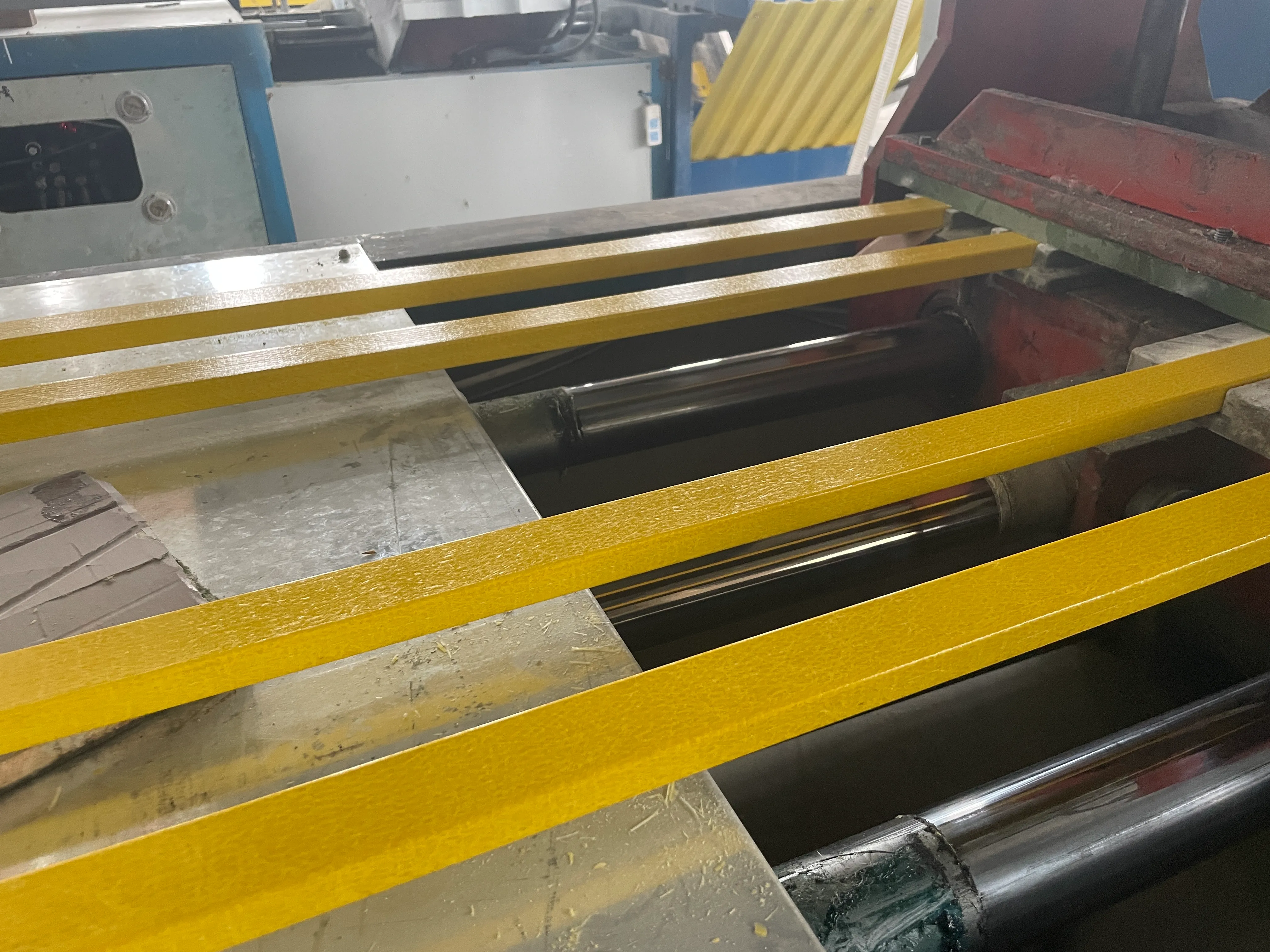loading...
- No. 9, Xingyuan South Street, Dongwaihuan Road, Zaoqiang County, Hengshui, Hebei, China
- admin@zjcomposites.com
- +86 15097380338
- Welcome to visit our website!
Exploring the Properties and Applications of FRP Rectangular Tubes in Engineering and Construction
Understanding FRP Rectangular Tubes Applications and Benefits
Fiber Reinforced Polymer (FRP) has gained significant attention in various industries due to its exceptional strength-to-weight ratio, corrosion resistance, and thermal stability. Among the many shapes and forms of FRP materials, rectangular tubes have emerged as a popular choice for structural applications. This article delves into the characteristics, advantages, and applications of FRP rectangular tubes.
What is FRP?
FRP, or Fiber Reinforced Polymer, is a composite material consisting of a polymer matrix reinforced with fibers. The most commonly used fibers are glass, carbon, and aramid, which are chosen for their high tensile strength and lightweight properties. The combination of these fibers with a polymer matrix results in a material that offers enhanced mechanical properties, making it suitable for various applications, particularly in demanding environments.
The Design of FRP Rectangular Tubes
FRP rectangular tubes possess a distinctive shape that enhances their structural integrity. The rectangular configuration allows for efficient load distribution and makes them ideal for various applications such as beams, columns, and other structural components. The cross-sectional design also facilitates easy installation and integration into existing frameworks, contributing to their popularity in construction and engineering projects.
Benefits of FRP Rectangular Tubes
1. Lightweight yet Strong One of the most significant advantages of FRP rectangular tubes is their lightweight nature. This property allows for easier handling, transportation, and installation. Despite being lightweight, these tubes maintain high strength and rigidity, making them suitable for load-bearing applications.
2. Corrosion Resistance Unlike traditional materials such as steel or aluminum, FRP is highly resistant to corrosion, particularly in harsh environments like chemical plants and coastal areas. This resistance extends the lifespan of structures and reduces maintenance costs, making FRP rectangular tubes a cost-effective choice for long-term projects.
3. Thermal Stability FRP materials exhibit excellent thermal stability, which is crucial in applications subjected to varying temperatures. They retain their mechanical properties without significant degradation, ensuring reliability over time.
frp rectangular tube

4. Customization FRP rectangular tubes can be tailored to meet specific requirements regarding size, shape, and fiber orientation. This versatility allows engineers and designers to create components that precisely match the demands of their projects.
5. Sustainability With increased awareness of environmental issues, the use of FRP materials offers a more sustainable alternative compared to traditional construction materials. Many FRP products are produced using recyclable components, contributing to a reduced carbon footprint.
Applications in Various Industries
The unique properties of FRP rectangular tubes make them suitable for a range of applications across different industries
- Construction and Infrastructure FRP rectangular tubes are widely used in building frameworks, bridges, and supporting structures due to their high strength and lightweight properties.
- Marine Industry Their corrosion resistance makes FRP rectangular tubes ideal for use in boats, docks, and other marine applications where exposure to water and corrosive elements is inevitable.
- Aerospace and Automotive The aerospace and automotive industries utilize FRP rectangular tubes for lightweight structural components, improving fuel efficiency and performance.
- Energy Sector In wind energy, FRP tubes are used for the construction of turbine blades and towers, leveraging their strength and resistance to environmental factors.
Conclusion
In summary, FRP rectangular tubes offer a blend of strength, durability, and versatility that makes them an invaluable resource in numerous applications. As technology advances and the need for sustainable construction materials grows, FRP may play an increasingly important role in shaping the future of engineering and construction across various sectors. Whether it’s for infrastructure projects or specialized applications, FRP rectangular tubes are indeed paving the way for innovative solutions in material science.
-
The Rise of FRP Profiles: Strong, Lightweight, and Built to LastNewsJul.14,2025
-
SMC Panel Tanks: A Modern Water Storage Solution for All EnvironmentsNewsJul.14,2025
-
GRP Grating: A Modern Solution for Safe and Durable Access SystemsNewsJul.14,2025
-
Galvanized Steel Water Tanks: Durable, Reliable, and Ready for UseNewsJul.14,2025
-
FRP Mini Mesh Grating: The Safer, Smarter Flooring SolutionNewsJul.14,2025
-
Exploring FRP Vessels: Durable Solutions for Modern Fluid HandlingNewsJul.14,2025
-
GRP Structures: The Future of Lightweight, High-Performance EngineeringNewsJun.20,2025
